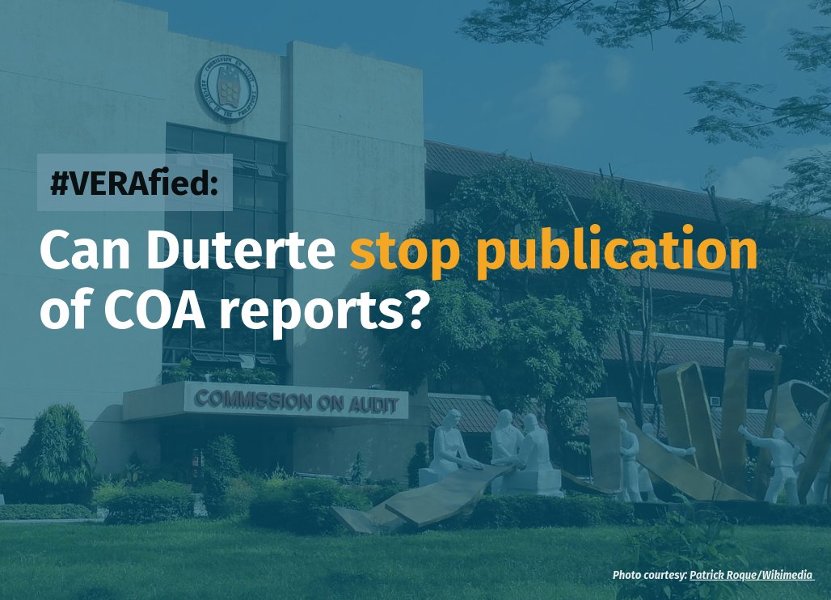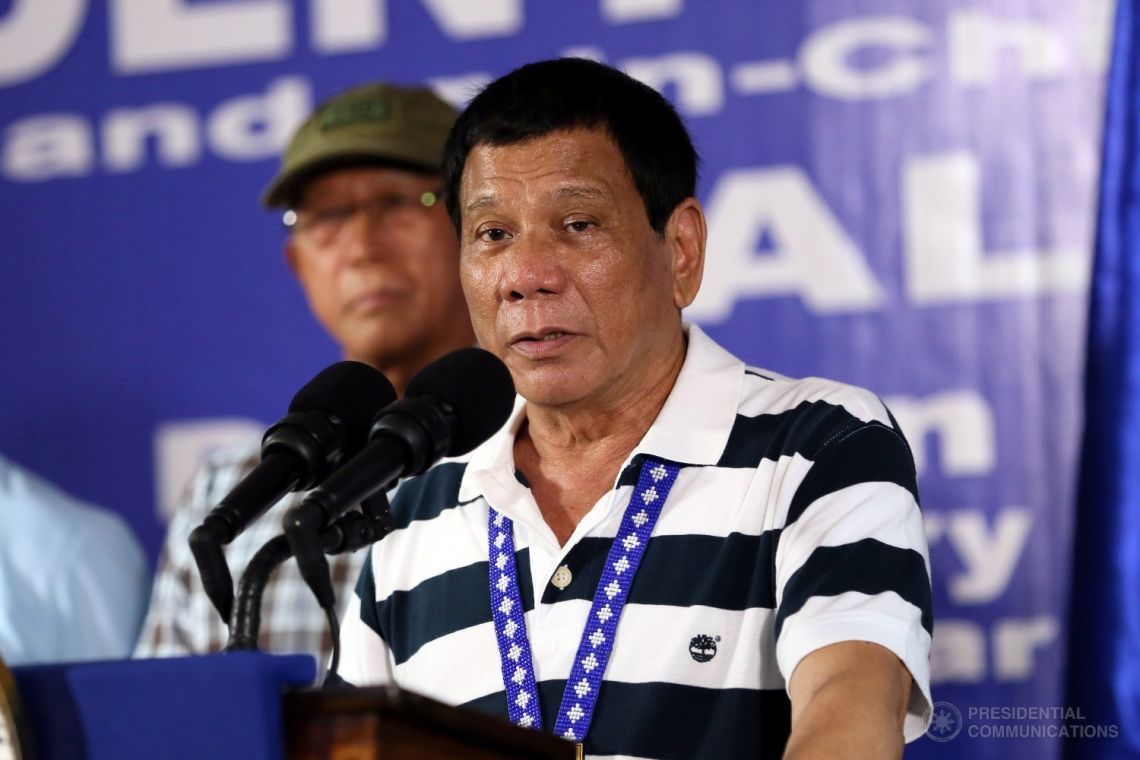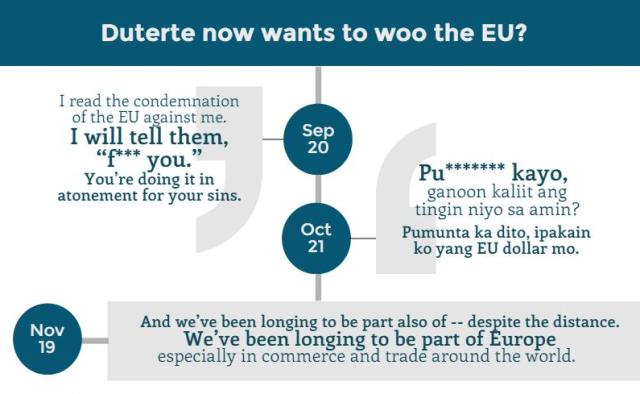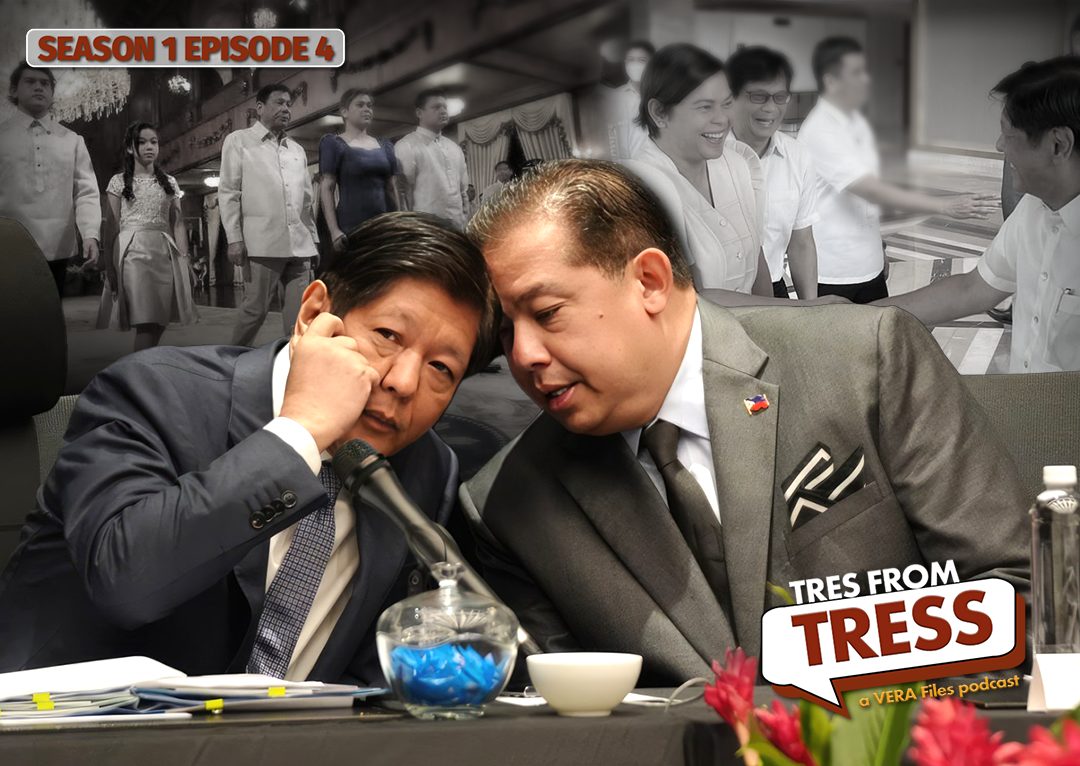The Commission on Audit (COA) recently became the second independent constitutional body that got a tongue-lashing from President Rodrigo Duterte. After castigating the Commission on Human Rights (CHR) on several occasions for its critical stand on his war on drugs, the president has turned his ire on COA over its findings noting “deficiencies” in P67.32 billion of the Department of Health’s (DOH) spending of the COVID-19 response funds.
During an almost three-hour public address that ended at 2:28 a.m. on Aug. 17, Duterte castigated COA for flagging various agencies found lacking in the documentation of budget spending. He said COA should stop flagging public offices over the deficiencies because it creates a “taint of corruption by perception.” He also told members of his Cabinet to not follow the state auditors’ recommendations.
Duterte’s tirade came in defense of DOH and Health Secretary Francisco Duque III, who has received a massive backlash over the findings of COA on the health department’s financial statements.
According to COA, its consolidated annual audit report on DOH for 2020 showed misstatements in P70 billion of asset accounts, P994 million for liabilities, and P70 billion for net assets/equity. The commission also noted, among its significant findings, deficiencies in the documentation of P67.323 billion worth of funds used for the government’s response against the coronavirus disease 2019 (COVID-19).
In another public address on Aug. 21, Duterte asked COA to “reconfigure” its audit reports and clearly state that there are no findings of corruption. The president again stood behind the beleaguered Duque and said he would continue to do so “even if it will bring me down.”
Duterte’s attacks against a constitutional office, as well as the mandate of COA, is nothing new. He has often castigated the CHR for its critical statements on the administration’s bloody war on drugs that has resulted in the killings of thousands of suspected drug personalities. He even threatened to abolish the CHR in 2017 for investigating police abuses during operations under his anti-drug campaign. He later claimed, however, that it was just a joke.
In January 2019, the president suggested that COA personnel be kidnapped and tortured “for making things difficult” for local government officials. On another occasion four months prior, he belittled COA’s powers and ridiculed its regulations as mere “shit of a circular.” Then, he went on to say that the agency’s resident auditor in Ilocos Norte be pushed down the stairs so he could no longer report, in response to the governor’s complaint about the P15,000 limit in cash advances for food even during calamities.
The president’s rants against COA have drawn questions from the public on the agency’s role in governance. Here are five things you need to know about the commission:
1. What is the mandate of COA?
COA is the supreme auditing arm of the government that is mandated under the 1987 Constitutionto “examine, audit and settle” all accounts pertaining to the expenditures and uses, among others, of funds and properties owned or controlled by the government.
The Constitution granted it “exclusive authority,” subject to limitations, to “define the scope of its audit and examination, establish the techniques and methods required therefor, and promulgate accounting and auditing rules and regulations, including those for the prevention and disallowance of irregular, unnecessary, excessive, extravagant, or unconscionable expenditures, or uses of government funds and properties.”
As one of the three constitutional commissions, COA enjoys fiscal autonomy and independence from any of the branches of the government, including the Office of the President. It has jurisdiction over all public offices, such as constitutional commissions and government-owned or -controlled corporations (GOCCs), and non-government organizations (NGOs) receiving subsidy or equity, directly or indirectly, from the government.
No law can be passed to exempt those offices from its jurisdiction, including their investment of public funds. As of September 2020, COA has authority over 66,045 auditees or public offices, including 341 state universities and colleges and 11,816 national government agencies and GOCCs.
Tracing its origin from the American colonial period, the commission had various names before it was elevated to a constitutional body and renamed as the General Auditing Office (GAO) under the 1935 Constitution. In 1973, GAO became COA with a “broader area of audit coverage.” It was restructured to have three commissioners under a newly crafted Constitution.
2. What is the composition of the COA?
The commission is led by a chairperson and two commissioners, each serving a seven-year term with no reappointment.
The commissioners must be certified public accountants with at least 10 years of auditing experience or are members of the Philippine bar engaged in the practice of law for 10 years minimum. They must not have vied for any elective position in the elections immediately preceding their appointment.
The appointment of the commissioners can only be made by the president, with concurrence from the bicameral Commission on Appointments.
As of Aug. 23, COA has only two commissioners, following the retirement of commissioner Jose Fabia in 2020 after completing the remaining six years of the term of former commissioner Rowena Guanzon. The remaining commissioners are Michael Aguinaldo, who was appointed as chairperson in March 2015 and will end his term in March 2022, and Roland Pondoc, who was nominated by Duterte in 2018.
3. What is the purpose of the annual audit report of COA?
The consolidated annual audit report (CAAR) of COA is mandated under the 1987 Constitution. According to the commission, the report contains its auditors’ observations and findings on the utilization of the budget of government agencies, as well as recommendations to resolve the concerns. The audit reports are published after a discussion or “exit conference” on the findings of COA auditors with the management staff and officials of a public office.
Former COA commissioner Heidi Mendoza said the audit reports help government offices improve their management of transactions and programs. She added that it serves as a “basis of trust” in determining whether offices are able to fulfill their mandates, their reliance on internal control, finding and seizing of “unconscionable” and/or misused funds.
Government offices flagged for deficiencies are required to implement COA’s audit recommendations within 60 days. These offices are mandated to notify the commission, the House speaker, the Senate president, the chairmen of the Senate committee on finance, the House committee on appropriations, as well as the secretary of the Department of Budget and Management about the actions taken.
Aside from the consolidated annual audit report, the commission produces other types of reports on fraud audit, information audit system, special audit and citizen participatory audit.
4. Was the DOH annual audit report for 2020 prematurely published?
Duterte and other government officials, including Palace Spokesperson Harry Roque and Duque, have questioned COA’s motive in publishing its reports that supposedly contained preliminary findings that put public offices in a bad light.
Dismissing claims that DOH was not afforded due process and the report was “premature.” Aguinaldo told the House Committee on Public Accounts in an Aug. 17 hearing that there were “constant meetings” with the DOH management.
“Before an audit report is issued, there is a lot of due process that is actually followed. There are constant meetings with the management. Meron pa ‘yang [there was also an] exit conference. So, it’s not correct at all to say na walang (there is no) due process,” he said.
5. Can the president stop the publication of audit reports?
According to Aguinaldo, the commission is mandated by law, or the General Appropriations Act (GAA), to publish the annual audit reports on its website. He said the reports usually come out by June 30 every year.
Duterte himself signed Republic Act 11465 (GAA of 2020) that requires COA to submit its reports, within 120 days after the end (September 30) of the fiscal year, to the Congress and the president and publish the copies on its website (coa.gov.ph).
Sources
RTVMalacanang, Talk to the People, Aug. 16, 2021 (transcript)
Commission on Audit, COA clarification on audit findings of DOH COVID-19 funds, Aug. 16, 2021
Commission on Audit, Department of Health, Accessed Aug. 23, 2021
RTVMalacanang, Talk to the People, Aug. 20, 2021 (transcript)
Rappler.com, Duterte jokes: Let’s kidnap, torture COA personnel, Jan. 8, 2019
Inquirer.net, Duterte: Let’s just kidnap and torture COA execs, Jan. 8, 2019
Al Jazeera, Philippines: Duterte wants state auditors ‘kidnapped, tortured’ | Rodrigo Duterte News, Jan. 8, 2019
Rappler.com, Duterte jokes: Push COA auditor in Ilocos Norte down the stairs, Sept. 16, 2018
ABS-CBN News, ‘Ihulog sa hagdanan’? Palace defends Duterte rant vs COA, Sept. 17, 2018
Philstar.com, WATCH: Duterte ‘jokes’ about pushing COA auditor down stairs, Sept. 17, 2018
Official Gazette, The Constitution of the Republic of the Philippines, Accessed Aug. 23, 2021
Commission on Appointments, Confirmed appointments from July 2013 to August, 2014, 2014
Commission on Audit, Constitutional Provisions, Accessed Aug. 23, 2021
Commission on Audit, History, Accessed Aug. 23, 2021
Commission on Audit, Commissioner Jose A. Fabia ends COA term, Feb. 7, 2020
Commission on Audit, Chairperson Michael Aguinaldo, Accessed Aug. 23, 2021
Commission on Audit, Commissioner Roland C. Pondoc, Accessed Aug. 23, 2021
ANC, Ex-Audit Commissioner: Annual audit report underwent due process, not premature | ANC, Aug. 18, 2021
People’s Television, WATCH: Press briefing with Presidential Spokesperson Harry Roque | August 17, 2021, aug. 17, 2021 (transcript)
ANC, ‘You ruined us’: PH Health Chief Duque laments COA report on DOH funds in House hearing | ANC, Aug. 18, 2021
Inquirer.net, COA commits to continue audit duties despite complaints from Duque, Duterte, Aug. 17, 2021
Manila Bulletin, COA to Duterte: ‘We have a constitutional mandate to follow’, Aug. 17, 2021
Interaksyon, ‘#ProtectCOA’ trends as audit chief vows to do job despite criticisms, Aug. 18, 2021
Department of Budget and Management, Republic Act 11465 (GAA of 2020)
Bureau of Internal Revenue, January – Bureau of Internal Revenue, January 2021
ABS-CBN News, House lawmakers look into COA report on DOH’s spending of COVID-19 funds, Aug. 17, 2021
(Guided by the code of principles of the International Fact-Checking Network at Poynter, VERA Files tracks the false claims, flip-flops, misleading statements of public officials and figures, and debunks them with factual evidence. Find out more about this initiative and our methodology.)





